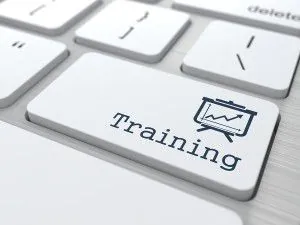The Mixed Classroom: Keys to Sales Training with Differing Levels of Experience

In an ideal world, sales training would involve learners of roughly the same level of experience and knowledge. The reality, as literally anyone involved in education can tell you, is often the complete opposite. Thus, the thorny problem – how to customize sales training so that it benefits everyone taking part?
Single session or multiple ones?
The first decision is whether to hold a single mass event or multiple smaller sessions. There are several factors that go into the decision – including organization size, number of departments involved, etc.The primary factor to consider when deciding on a single group or several smaller groups is classroom size. In general, smaller sizes are better because you have more quality interactions and more fruitful discussion. Our own recommendation is to cap a live class size at 20 or less. Obviously, with eLearning or blended approaches, larger numbers can come into play.
Another angle to look at is how many departments need to be involved in training and how much customization of the curriculum (if any) is required for a particular group. For example, customer service professionals might be pulled into the training in order to equip them with the skills to identify cross- and upselling opportunities while providing support to existing accounts.
Pre-classroom planning and information are paramount.
It’s important for a sales training vendor to consult with sales leadership prior to an event to be able to adapt the curriculum and processes to the client’s individual needs. Another part of this phase is to invite tenured sales reps to provide their input and take a leadership role for creating excitement and motivation for the training. Additionally, during the event itself, veteran reps should have the opportunity to share their knowledge and expertise to feel valued and invested in the training.Another possibility to consider for a mixed training is to provide less experienced sales reps materials and information beforehand. In this scenario, they’ll be expected to have consumed and become familiar with the pre-event homework, so that the training can begin with a higher baseline of knowledge and be more worthwhile for those who are more experienced.
Pair reps of different levels during role-plays and other training exercises.
One of the benefits that come from a mixed class is the chance to pair veteran reps with newer ones during roleplays and exercises. The tenured reps can model best practices and help highlight areas of improvement for junior colleagues. This not only provides an added bonus of leadership and coaching experience on a small scale for older sales reps, it might establish a foundation for a mentoring relationship to develop after the training.
The trainer should be available for post-training follow-up questions.
Training doesn’t end with the event itself. As we’ve discussed previously, reinforcement and sustainment strategies need to be employed to ensure that the behavioral changes are both effective and permanent.Part of that involves the trainer being available for post-training questions. Perhaps an attendee was too shy to speak up in person, or it might be that while there were initially no questions, in the days and weeks that followed, questions have come up. Being able to reach out to the trainer for answers is a critical component of the after-training support – especially to ensure accuracy of information while all levels of the sales organization implement the learned skills and knowledge.
Handling a training event with multiple levels of experience isn’t easy and not every sales training vendor is able to handle that situation. If your sales organization falls under this category, you’ll want to make sure your internal trainers or selected outside vendor has an established track record of being successful with mixed groups. The vendor should also follow the guidelines we’ve listed here to ensure a great training event for all sales reps involved.

- Account Planning (11)
- Awards (49)
- Client Testimonial (37)
- Personal Branding (19)
- Podcast (11)
- Research (70)
- Sales Career Development (87)
- Sales Coaching (156)
- Sales Consulting (137)
- Sales Culture (170)
- Sales Enablement (354)
- Sales Leadership (109)
- Sales Management (248)
- Sales Negotiation (16)
- Sales Prospecting (125)
- Sales Role-Playing (18)
- Sales Training (235)
- Selling Strategies (263)
- Soft Skills (70)
- Talent Management (94)
- Trusted Advisor (27)
- Virtual Selling (49)
- Webinar (9)



























